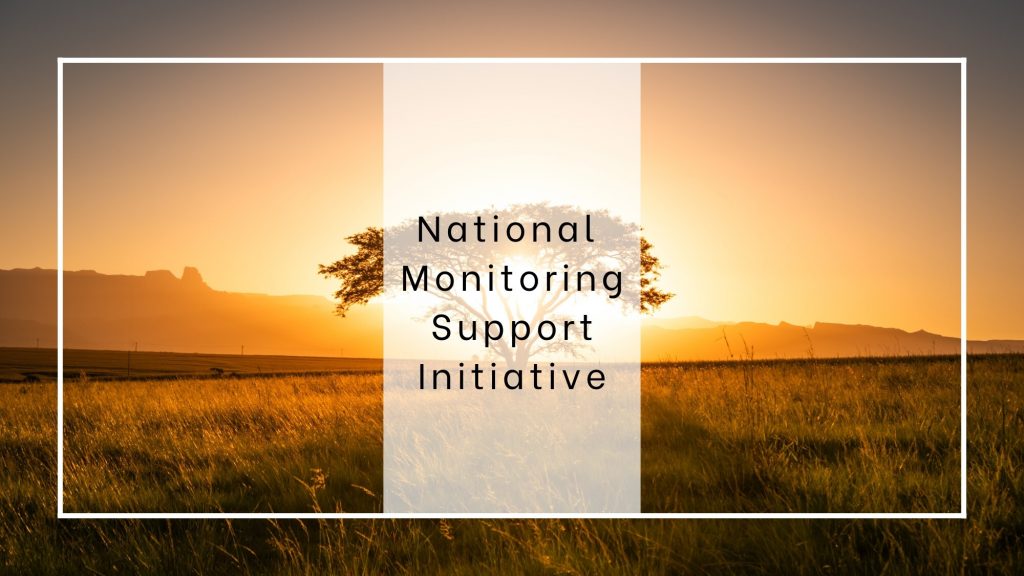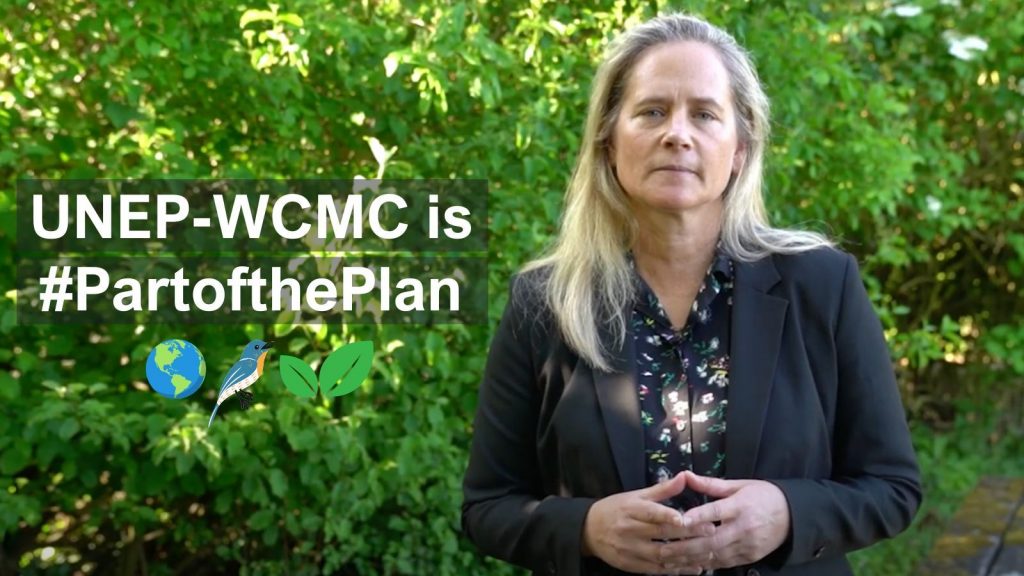News
Being part of the Plan: UNEP-WCMC’s work to support the Global Biodiversity Framework

Impact | May 2024
Nature underpins our economies, our health and our wellbeing. But nature is in crisis, and the benefits it provides to people in jeopardy.
Nearly a year-and-a-half ago, the Parties to the UN Convention on Biological Diversity (CBD) adopted the historic Kunming-Montreal Global Biodiversity Framework (GBF), an agreement that sets out an ambitious pathway to halt and reverse the loss of biodiversity. The four goals and 23 targets of this framework are now also referred to as ‘The Biodiversity Plan’.
Today, on International Day for Biological Diversity, the UN Environment Programme World Conservation Monitoring Centre (UNEP-WCMC) joins a global call for action to support the implementation of GBF and to “Be part of the Plan”.
UNEP-WCMC plays a vital role in supporting countries in the implementation of the Biodiversity Plan, working across all 23 targets.

Here is a small sample of our work to implement four of the 23 targets and to support the implementation process:
Target 1: Plan and manage all areas to reduce biodiversity loss
UNEP-WCMC is part of the SPACES coalition, which offers support to high-ambition countries on nature and climate goals. The SPACES scoping phase prepared resources and guidance to help ensure that decision-making integrates nature, climate and sustainable development objectives.
We also manage the Integrated Biodiversity Assessment Tool (IBAT), which provides decision-makers with a tool to assist spatial and developmental planning and policies, guided by research and mapping.
Target 3: Conserve 30% of Land, Waters and Seas
UNEP-WCMC maintains and develops the Protected Planet Initiative. This is the definitive global source of knowledge and data on the status and trends of protected and conserved areas.
Protected Planet provides the official indicators of progress towards Target 3, derived from data provided by Parties to the CBD and other partners. Later this year we will release the Protected Planet 2024 report, the first update on protected areas since the agreement of the GBF in 2022.
Target 15: Businesses Assess, Disclose and Reduce Biodiversity-Related Risks and Negative Impacts
The ENCORE (Exploring Natural Capital Opportunities, Risks and Exposure) tool helps businesses to identify the impacts and dependencies of their activities on nature so they can better manage and report on them. UNEP-WCMC manages ENCORE in collaboration with Global Canopy and the UN Environment Programme Finance Initiative. By enabling large companies’ monitoring, assessment and transparent disclosure of their impacts on biodiversity, we ensure progress on Target 15.
Target 22: Ensure Participation in Decision-Making and Access to Justice and Information Related to Biodiversity for all
In all its work UNEP-WCMC recognises that achieving the Biodiversity Plan needs cooperation across the whole of society to take the world from agreement to action. Governments, indigenous peoples, local communities, non-profits, businesses, and individuals all have a role to play in achieving the goals and targets of the Biodiversity Plan.
Indigenous communities safeguard 80 per cent of the world's remaining biodiversity on their territories. Case studies, maps, photos and stories about these territories of life can now be found on the ICCA Registry, the online reporting platform for strengthening evidence on the conservation importance of ICCAs. UNEP-WCMC also manages the Nature Commitments Platform, where individuals, non-profit organisations and the private sector can upload their commitments to area-based conservation, and inspire others to take action.
Monitoring implementation of the Biodiversity Plan
A comprehensive monitoring framework was adopted as part of the Biodiversity Plan. This consists of indicators to enable planning, monitoring, tracking and reporting on progress of national and global level progress.
For 40 years, UNEP-WCMC has been the global convenor of expertise on nature indicators and providing support to governments and other stakeholders developing systems to monitor their national actions. We host the Secretariat to the Biodiversity Indicators Partnership (BIP), a group of over 70 organisations that are involved in the production, support and use of more than 65 biodiversity-related indicators. We support the Secretariat of the CBD as the data manager for the indicator metadata.
We have just launched the National Monitoring Support Initiative. This project, in association with the CBD Secretariat, partners of the BIP and funded by the International Climate Initiative, seeks to increase 10 countries’ capacity, tools and systems for biodiversity monitoring by 2030.

Transformational changes are needed for people to live in harmony with nature. As we look ahead to the 16th meeting of the Conference of the Parties to the Convention on Biological Diversity in Colombia later this year, International Day for Biological Diversity is an important reminder that everyone has a role to play in implementing the Biodiversity Plan and we can all contribute to achieving its Goals and Targets.
As part of our efforts to achieve this, we are pleased to support countries to monitor their progress on achieving national nature targets through the new National Monitoring Support Initiative. Enhancing countries’ monitoring capacity will enable them to review and strengthen their national actions to meet the 2030 targets, and eventually, the 2050 vision of living in harmony with nature.
Melissa de Kock, Deputy Director of UNEP-WCMC
Working closely with the CBD
Two meetings of the subsidiary bodies of the CBD bookend International Day for Biological Diversity this year, both taking place in Nairobi, and focussing on the implementation of the Biodiversity Plan.
Delegates from UNEP-WCMC joined the 26th meeting of the Subsidiary Body on Scientific, Technical and Technological Advice last week. Nations agreed recommendations on major issues including the monitoring framework, and the suite of indicators that will measure implementation of the GBF, and scientific and technical needs to support its implementation. This week, another team is attending the fourth meeting of the Subsidiary Body on Implementation to participate in conversations on the global collective review of progress towards the Biodiversity Plan, national target setting, resource mobilisation and capacity-building.

Main image: AdobeStock_497394241
Have a query?
Contact us
communications@unep-wcmc.org
